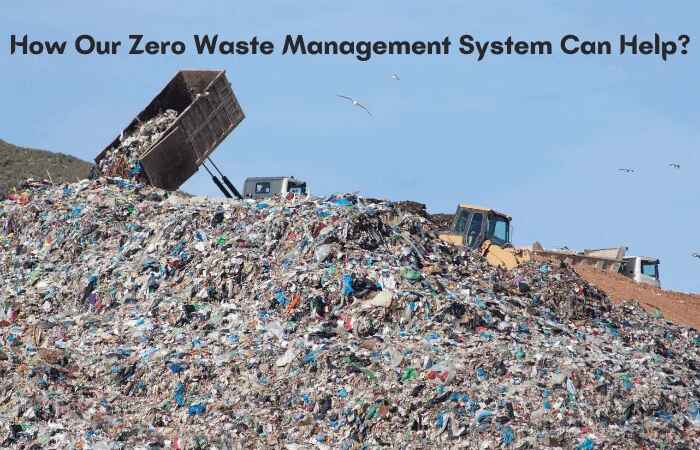


DCC Group is approaching sustainable waste management system through a zero waste management project.
India generates over 62 million tons of municipal solid waste (MSW) annually, with projections estimating a rise to 165 million tons by 2030. With only 70% of waste collected and 12 million tons treated, landfills are overwhelmed, contributing to environmental degradation and public health risks. DCC Group, a leader in sustainable waste solutions, is transforming this landscape through decentralized solid waste management. By implementing zero waste management systems and MRF in solid waste management, DCC is driving India toward zero waste to landfill goals, with local actions creating global impact.
Decentralized solid waste management involves processing waste at or near its source, reducing the need for centralized landfills and long-distance transport. DCC Group’s approach integrates material recovery facilities (MRF) to sort, recycle, and repurpose waste locally. Unlike centralized systems, which incur high transportation costs and emissions (approximately 0.3 tons of CO2 per ton of waste), decentralized systems minimize environmental impact and empower communities. DCC’s zero waste management system processes waste into recyclables, compost, and refuse-derived fuel (RDF), diverting up to 90% from landfills.
Their MSW processing plants use advanced technologies like trommel screens, ballistic separators, and organic waste composters. For instance, their MRF in solid waste management sorts plastics, metals, and paper with 95% accuracy, while organic waste is converted into compost using superself bio cultures. Non-recyclable waste is processed into RDF, fueling cement kilns and reducing fossil fuel dependency. This holistic approach supports India’s circular economy, transforming waste into valuable resources.
DCC’s decentralized systems are tailored for India’s diverse urban and rural landscapes. In urban areas like Delhi, their compact waste segregation machines enable on-site processing in residential complexes and commercial zones, reducing transport emissions. Rural areas benefit from scalable MRF units, processing 5-50 tons per day. Projects like the Ghazipur landfill bio-mining, where DCC reclaimed 3.05 acres, showcase how decentralized solid waste management recovers land and resources, aligning with Swachh Bharat Mission goals.
Globally, decentralized systems are gaining traction, with cities like Amsterdam achieving 65% recycling rates through localized processing. DCC’s efforts contribute to this trend, reducing India’s 13 million tons of illegally dumped waste annually. By integrating IoT-enabled sensors and AI-driven sorting, their systems enhance efficiency, cutting operational costs by up to 13%. This aligns with global sustainability goals, like the UN SDG 2030, promoting responsible consumption and production.
Challenges like inconsistent source segregation and limited awareness persist. DCC addresses these through community outreach and user-friendly zero waste management systems. The global waste management market, projected to reach USD 2.1 trillion by 2027, offers opportunities for DCC to expand their decentralized solutions, incorporating blockchain for waste tracking and AI for predictive analytics.
DCC Group’s decentralized solid waste management is paving the way for zero waste to landfill India. By empowering local communities and reducing environmental impact, their solutions create a global ripple effect. Contact DCC at [email protected] or +91-7290049003 to explore how their technology can transform your city’s waste management, driving sustainable urban growth and a greener future.
